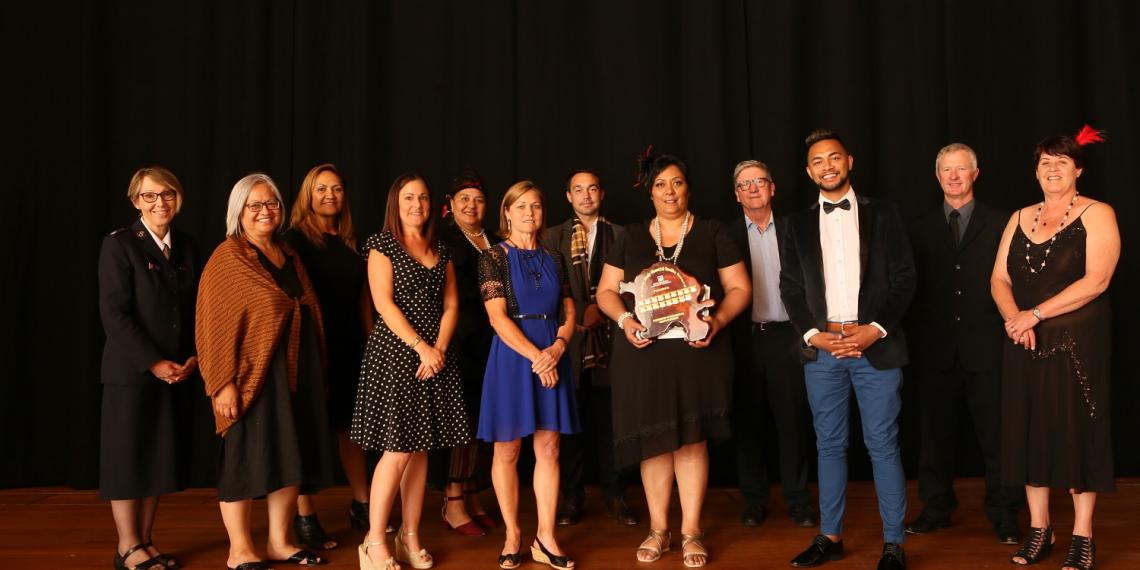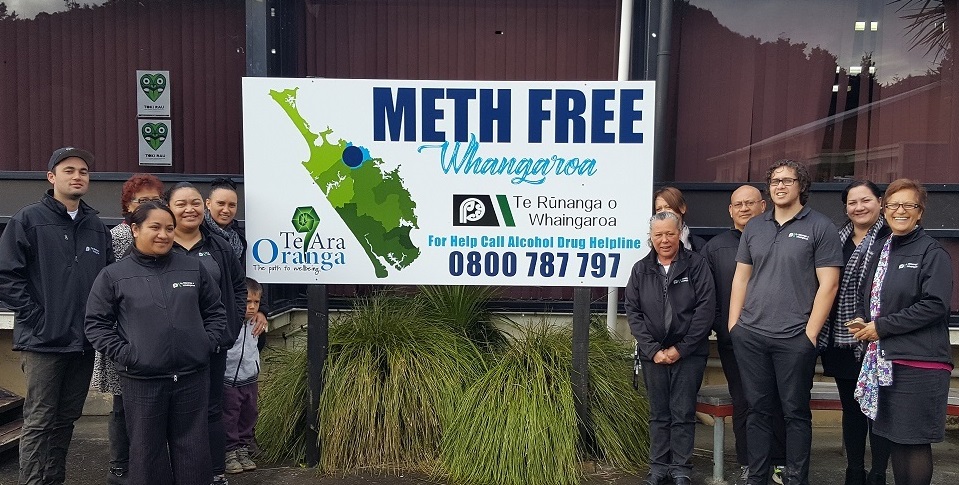You are here
Te Ara Oranga Meth Demand Reduction Programme

An innovative collaboration between New Zealand Police, Northland DHB Mental Health and Addiction Services and non-government AOD services, including the The Salvation Army’s Northland Bridge services.
Background
Te Ara Oranga, a joint initiative between Police and Northland DHB, was allocated funding for a 12-month pilot in 2016, an allocation of the Proceeds of Crime Fund sourced through the Criminal Proceeds (Recovery) Act 2009.The initial 12-month funding was for the establishment phase (new treatment options/referral pathways) and recruitment of health and police personnel. Te Ara Oranga was operational from October 2017.
A key benefit of Te Ara Oranga is the strengthening of the relationship between Police and local health services including The Salvation Army Bridge. The referral pathway between the agencies ensures that anyone who would benefit from treatment is offered the opportunity, with the person being contacted within 48 hours of being referred.
The Te Ara Oranga model dramatically improves the opportunity to not only reduce methamphetamine supply through enforcement by police but reduces demand for the Class A drug by supporting individual users to reduce the harm caused by substance use (or methamphetamine use).
A challenge of the programme was learning to work across different agencies—something which ultimately worked in its favour.

Wastewater Pilot Programme
- In December 2016 New Zealand Police began a wastewater pilot programme in Auckland, Christchurch and Whangarei to get an accurate assessment of the prevalence of drug use in the community.
- Between 2016 and 2019 Methamphetamine use in Northland was higher than any other region in New Zealand (twice that of Auckland and three to four times that of Christchurch).
- The wastewater testing regime has now expanded to 45 testing locations across New Zealand (covering approximately 75 percent of the total population.
- For the first three months of 2020 Methamphetamine use in Northland was lower than Auckland and Eastern Districts.
“We were wanting to establish a project that would address that harm and start to intervene at a much earlier point of an individual’s journey. The programme brings together a whole lot of agencies who don’t normally work together and creates referral pathways between us. This is about putting the person at the centre of the process and thinking about how to engage the user or their whānau, and to support them in a way that leads to the transformation of their lives,” said Major Sue Hay, Director of the Northland Salvation Army Bridge services.
Key elements of success
- The establishment of referral pathways from police into treatment.
- Earlier and more timely treatment.
- Assertive outreach.
- Employment support.
- The development of community networks.
- Carrying out community consultation to shape the resources that have been developed for communities.
“I think one of the beauties of this project is that all agencies have been so focused on doing what is right for Northland and for individuals and whānau.
There are people who are now coming to us for treatment because they want to leave a legacy for their kids. They want to re-engage with their kids, and they want to change and turn the next generation around.” Major Sue Hay, Director of the Northland Salvation Army Bridge.
Many success stories have been shared from the programme, including the story of Wiremu, a father who lost his children to foster care when someone complained they weren’t being looked after. “I was on a benefit and I was spending $200 a week on meth. I used to lie about having food in the house for the kids,” Wiremu told Radio New Zealand. He later had his children removed from the home. “I never felt so hurt and alone.”
Wiremu was urged to seek help from the Bridge, a move that saved his life. “It was hard to quit: I had the shakes, I had the spews, woke up 50 times a night but I got off it. We got the kids back just before Christmas and I couldn’t be happier.” Now Wiremu is employed again and living with his children.
Awards won by the Te Ara Oranga team
- The Excellence in Generation, Application and Development of Evidence Award at the Problem-Orientated Policing Awards in March 2020.
- The programme won the Matua Raki Workforce Innovation Award; a prize which recognises innovation in work practices contributing to workforce development and wellbeing.
- Te Ara Oranga was also the winner of the Cedric Kelly Supreme Award and Collaboration Award at the 2018 Northland Health and Social Innovation Awards.